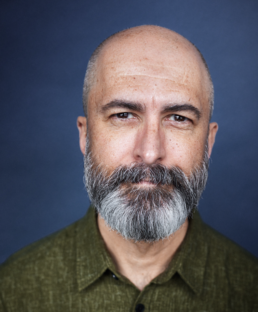Rob Francis

Come home to yourself
I believe therapy is, at heart, an opportunity to recognise, experience and nurture a more secure, loving home within ourselves. This is our primary relationship in life, regardless of our external circumstances or relationship status. It lies at the heart of our ability to respond to the dilemmas we face and to live meaningful, satisfying lives. In doing this work we can create more internal stability in an increasingly fast-paced, distracting and stressful world. Starting therapy is a way of acknowledging that we want something different for ourselves, whatever we’re experiencing that prompts us to seek professional help. It’s a courageous act.
Psychotherapy with Rob
I am an experienced humanistic psychotherapist and bring an attitude of curiosity, creativity and pragmatism to my work. People come to work with me on all kinds of things, most commonly the experiences we refer to as anxiety or depression; anger; relationships; abuse and trauma; patterns of addiction and co-dependency; sexuality and gender identity; stress and burnout; loss and grief; existential crises of purpose and meaning.
For me, therapy is a process of attention, experimentation, discovery, empowerment and growth. In this process you can take action on your own behalf. You can recognise and develop existing inner and outer resources and establish new ones, supporting yourself to live a more satisfying life, whatever your life stage or situation. Alongside talking, I work somatically (with the body), taking into consideration your physical structure and behaviour. This is to help you get clear about the impact you have on yourself and to support you to recognise, directly experience and influence your embodied patterns, attitudes, roles and identities in real time. You can work to end those that no longer serve you and establish new ones that do – ones that are right for you now. In the process you can become more self-referenced.
You can join the dots between your structure and behaviour and your emotional experience, mental state and relationships with others. These are ways in which you can change and grow, laying down new neural pathways, leading to greater satisfaction and increased hope, as you mature and evolve towards fulfilling your potential. Working in a therapy group additionally offers a community of belonging, collaboration and learning, as you do your own work, and witness and engage with others doing theirs. In the group we can practise and grow trust, helping each other to heal, develop, and become stronger.
Who I work with
I work with adults across the breadth and depth of experience and identity, whatever your gender, sexuality, race, class, values, background, disability, neurodiversity and stage of life. I also happen to work a lot with men. More and more men are engaging in therapy rather than emotionally going it alone (whether single or in relationship), thereby challenging outdated, harmful ideas about our emotional selves and who we are. I have a particular interest in men’s relationships with our fathers and their profound impact on us. This impact spans the somatic, emotional, cognitive, relational and existential realms of our experience and affects how we have developed our identity and sense of self. This is regardless of whether they have been physically present in our lives – whether loving, neglectful or abusive – or absent.
Alongside my practice working with individuals here at Homa and at Barnsbury Therapy Rooms, I am running groups at Homa, starting with Meeting Ourselves, an ongoing therapy group for men from early 2023. We will explore the theme of fathers and sons in the first term, as one way of getting to know each other as we establish the group.
My training and professional experience
I originally studied at art college and, before becoming a therapist, worked with people in a range of roles and settings, including adults with learning difficulties and people who have experienced life-changing health issues, some at the end of their life.
I trained at Spectrum, a leading centre for humanistic psychotherapy, over the course of six years. My training was a rich experiential process of learning and growth. Since then, I have continued to deepen my education and experience through ongoing training, professional development and supervision groups over many years. I am an accredited member of the National Counselling and Psychotherapy Society (NCPS).
Next steps
You can find out more about me and my work and check my availability on my website. If you’re interested in working together, either individually or as part of a men’s group, please email me, telling me what’s prompted you to get in touch, and what you’d like to work on in therapy. I will confirm my availability and we can go from there.
